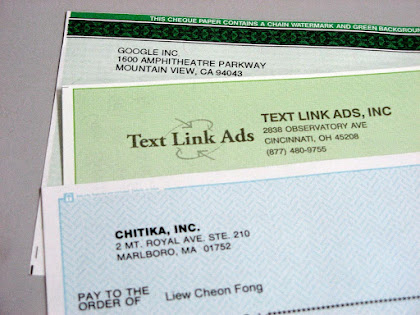Crossing of Cheque - Different Types of Check Crossing
 What is Crossing of Cheque ?
What is Crossing of Cheque ?
A cheque is a negotiable instrument. During the process of circulation, a cheque may be lost, stolen or the signature of payee may be done by some other person for endorsing it. Under these circumstances the cheque may go into wrong hands.
Crossing is a popular device for protecting the drawer and payee of a cheque. Both bearer and order cheques can be crossed. Crossing prevents fraud and wrong payments. Crossing of a cheque means "Drawing Two Parallel Lines" across the face of the cheque. Thus, crossing is necessary in order to have safety. Crossed cheques must de presented through the bank only because they are not paid at the counter.
 Different Types of Crossing ↓
Different Types of Crossing ↓
1. General Crossing :-
Generally, cheques are crossed when
- There are two transverse parallel lines, marked across its face or
- The cheque bears an abbreviation "& Co. "between the two parallel lines or
- The cheque bears the words "Not Negotiable" between the two parallel lines or
- The cheque bears the words "A/c. Payee" between the two parallel lines.
Specimen of General Crossing ↓
2. Special or Restrictive Crossing :-
When a particular bank's name is written in between the two parallel lines the cheque is said to be specially crossed.
Specimen of Special or Restrictive Crossing ↓
In addition to the word bank, the words "A/c. Payee Only", "Not Negotiable" may also be written. The payment of such cheque is not made unless the bank named in crossing is presenting the cheque. The effect of special crossing is that the bank makes payment only to the banker whose name is written in the crossing. Specially crossed cheques are more safe than a generally crossed cheques.



-
rahil
said...
August 27, 2013 at 9:43 PMthat was very use full stuff for students who are desire to know such a information.